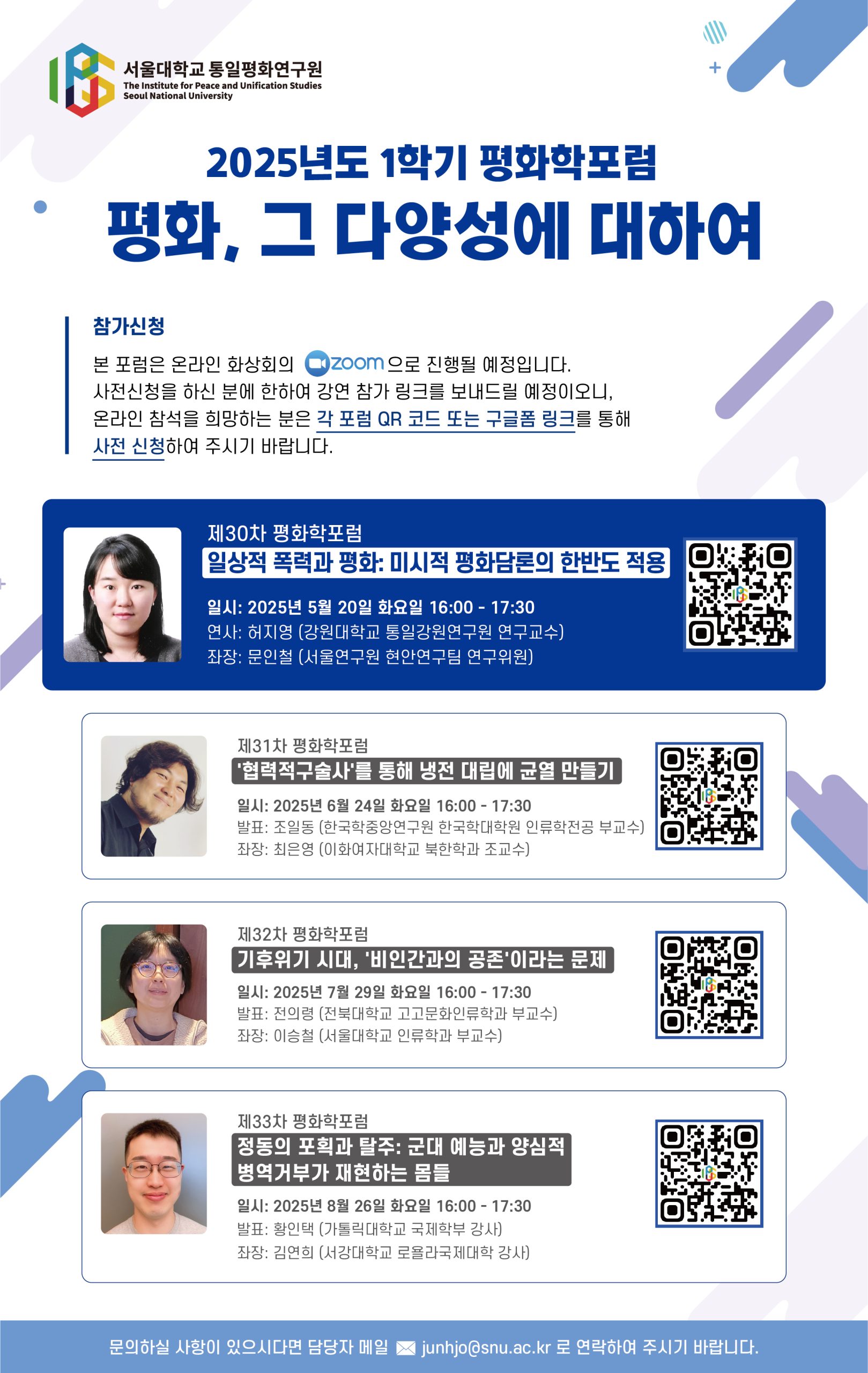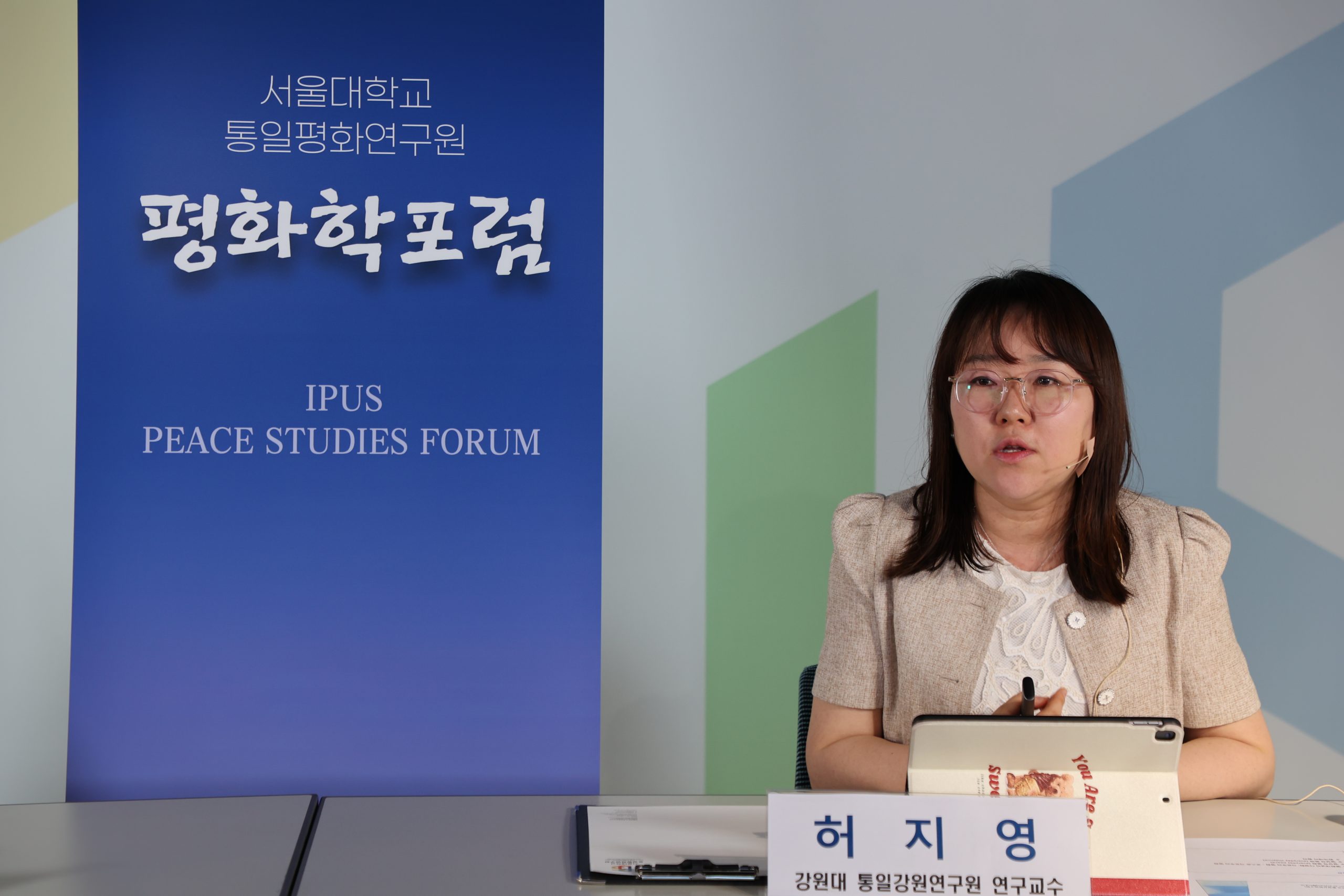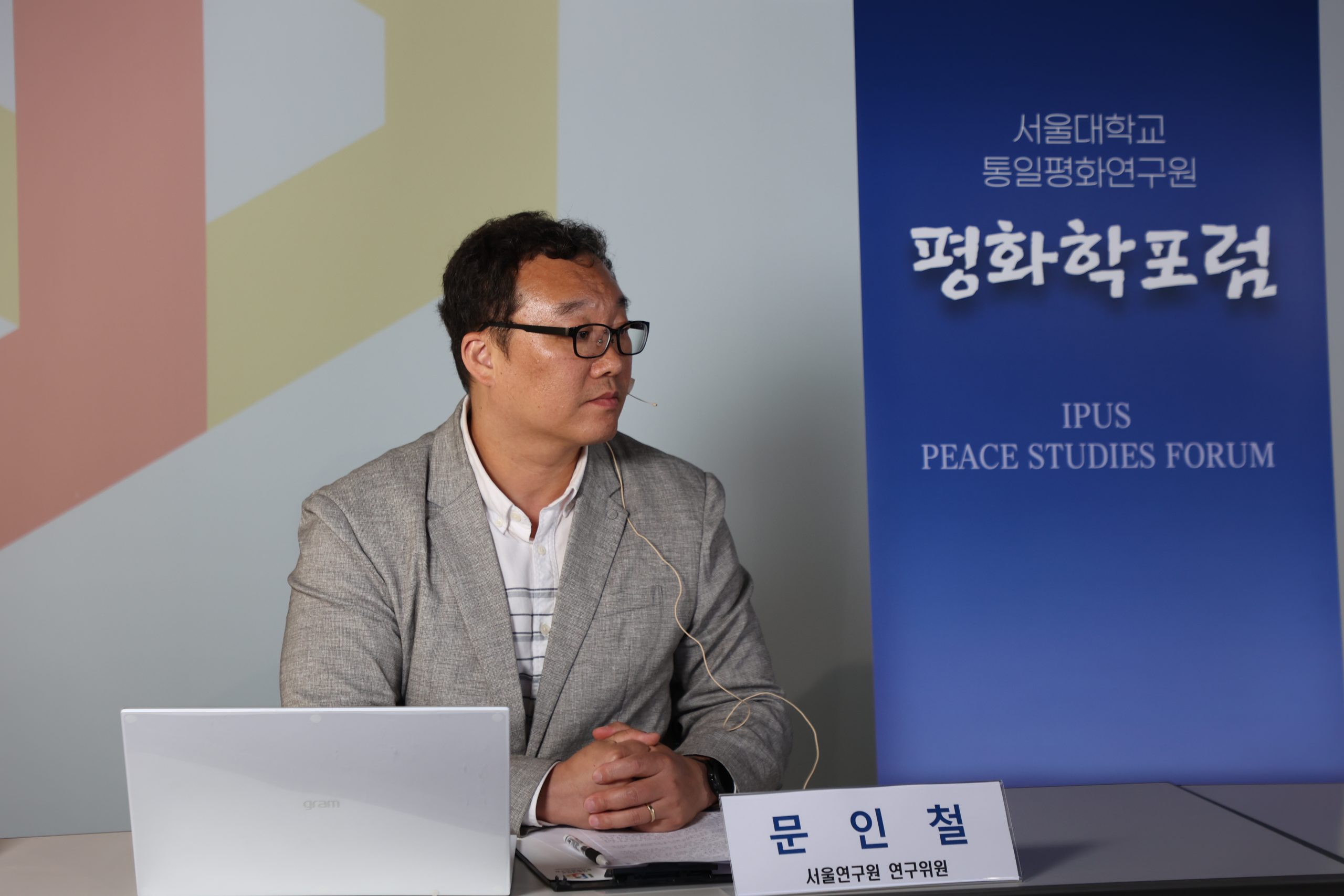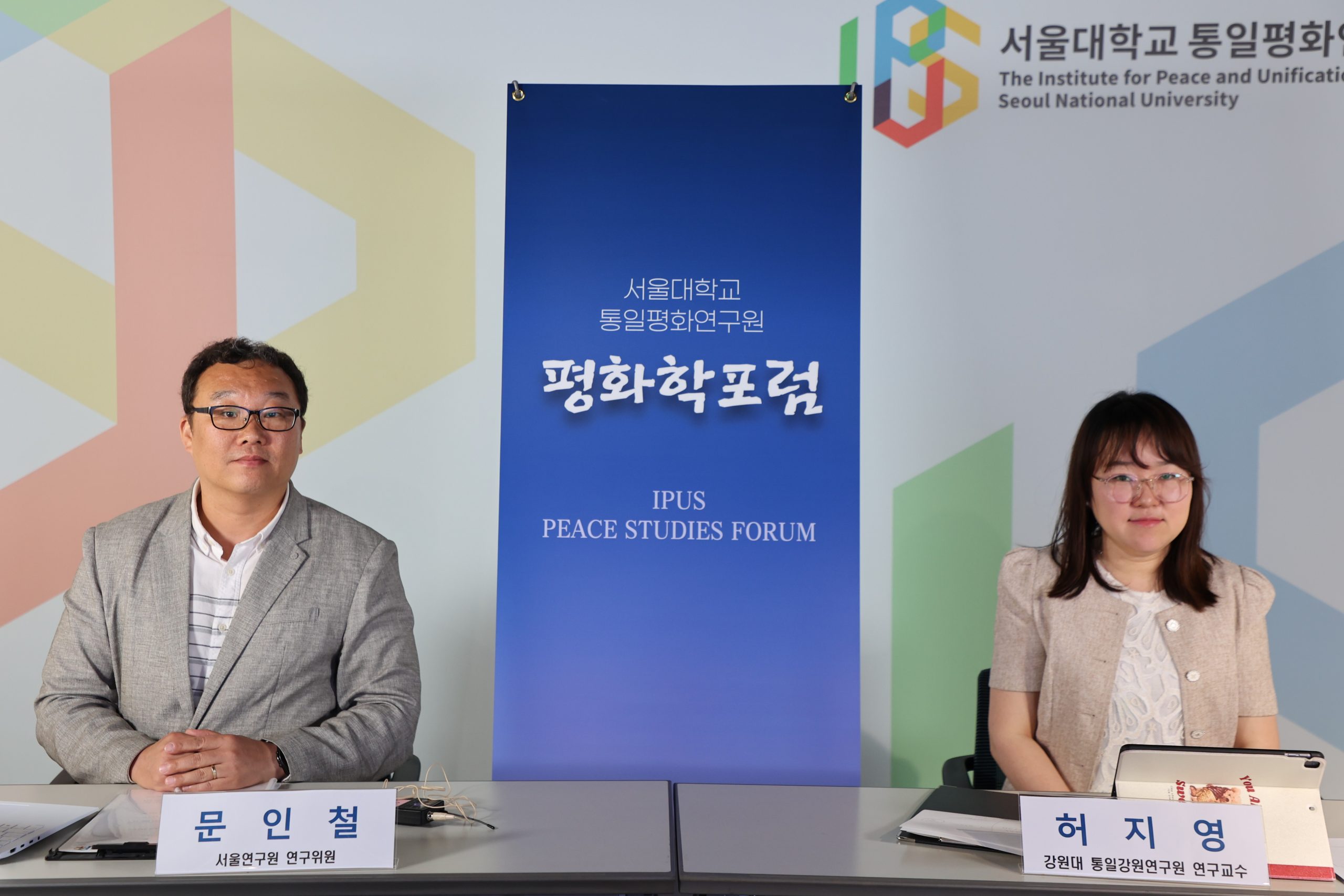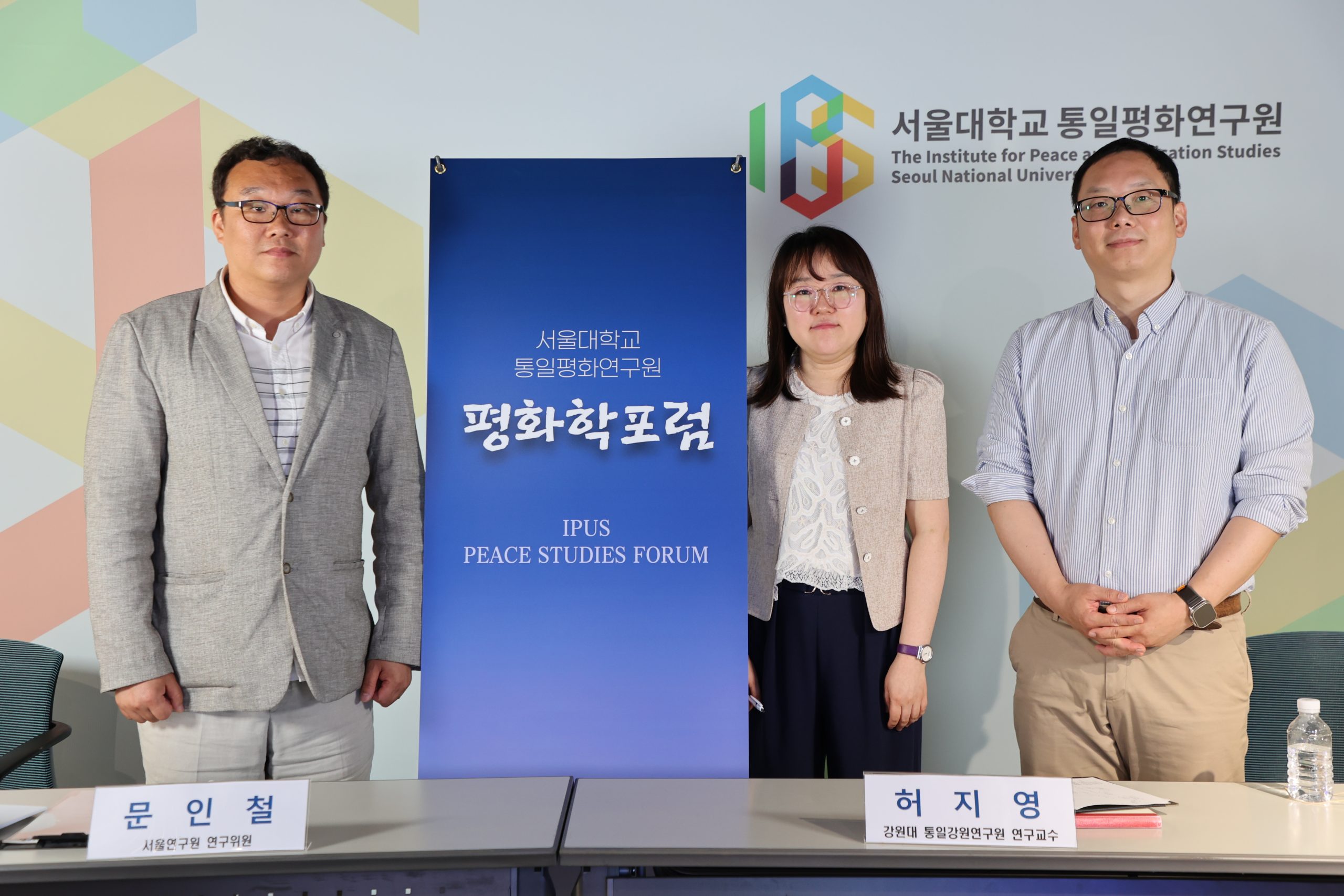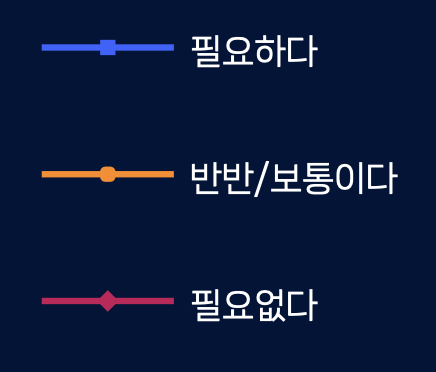[30th Peace Studies Forum] Everyday Violence and Peace: Applying the Micro-Discourse of Peace to the Korean Peninsula
- Date: Tuesday, May 20, 2025, 17:00-18:30
- Venue: Online Video Conference (ZOOM)
- Presenter: Heo, Ji-Young (Research Professor, Kangwon Institute for Unification Studies, Kangwon National University)
- Chair: Moon, In-Chul (Research Fellow, Seoul Institute)
- Theme: Everyday Violence and Peace: Applying the Micro-Discourse of Peace to the Korean Peninsula
The Institute for Peace and Unification Studies at Seoul National University (IPUS at SNU) held the 30th Peace Studies Forum on Tuesday, May 20, 2025, under the overarching theme of ‘Peace, On Its Diversity.’ The forum featured Dr. Heo, Ji-Young, Research Professor at the Kangwon Institute for Unification Studies at Kangwon National University, who delivered a presentation on the main topic “Everyday Violence and Peace: Applying the Micro-Discourse of Peace to the Korean Peninsula.” The forum was chaired by Dr. Moon, In-Chul, Senior Fellow at the Seoul Institute, who opened the session with welcoming remarks.
In her presentation, Dr. Heo explored the conceptual foundations and practical implications of “everyday peace” and “everyday violence”—concepts gaining increasing attention in contemporary peace studies. She began by critiquing the liberal peace paradigm, which has often imposed Western-centric political and economic models on conflict zones. According to Dr. Heo, such top-down approaches have led to negative consequences, including civil war relapse, authoritarian resurgence, and mass atrocities. As an alternative, she introduced the notion of “post-liberal peace,” which emphasizes “local ownership” and “hybrid peace” grounded in historical, cultural, and social contexts.
Within this framework, Dr. Heo elaborated on the concept of everyday peace, which refers to the micro-level strategies employed by ordinary people in post-conflict societies to avoid risk and navigate tensions. These include avoidance, ambiguity, ritualized politeness, telling, and blame deferring. While initially perceived as mere survival tactics, Dr. Heo argued that such behaviors have evolved into public practices that weaken cultures of conflict and contribute to broader peacebuilding efforts. She also highlighted how groups traditionally viewed as victims—such as women and youth—are increasingly recognized as active agents in the peace process. This evolution reflects what she called the “relational nature of peace,” which is rooted in empathy and consideration for others. Drawing on the concepts of “first peace” and “last peace,” she underscored the social dimension of peace as being built on mutual care and solidarity.
Dr. Heo then introduced the concept of everyday violence, developed primarily in gender studies, as another important pillar of peace research. This form of violence encompasses not only physical aggression but also structural, cultural, and unconscious violence that is repeatedly inflicted on individuals and groups. Victims of everyday violence may suffer psychological and physical harm without fully recognizing or acknowledging it—often normalizing their experiences. Dr. Heo emphasized that making such subtle forms of violence visible is essential for fostering inclusive societies.
She identified manifestations of everyday violence such as exclusion, discrimination, rejection, and ostracism. Examples include microaggressions, verbal humiliation, and social ghosting, which undermine individuals’ sense of belonging and can become entrenched within social norms. In the South Korean context, Dr. Heo pointed to North Korean defectors, returnee migrants, and marriage immigrants as groups vulnerable to such everyday violence. She particularly drew attention to South Korea’s banal racism—a form of neo-racism that should be understood not as cultural difference, but as structural violence requiring critical reflection and policy attention.
In concluding her lecture, Dr. Heo cautioned that everyday violence could become a significant issue in the event of inter-Korean reunification or expanded inter-Korean contact. She stressed the need for individuals to cultivate peaceful mindsets and behaviors to overcome these divisions. Ultimately, she called for an integrated approach that links micro-level peace practices with macro-level peacebuilding, using the lens of everyday peace to address various social conflicts in South Korea.

